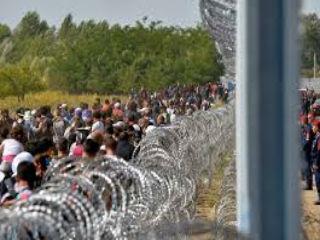At last: the international community finally acknowledged the need for coordinated action and an international agreement on how to handle the unprecedented wave of migration that has hit Europe and elsewhere

Migrants and refugees have special stories. They are not just numbers. And migration brings continents closer together, requiring them to work together at different stages of the migration journey.
by
Giampaolo Silvestri*
A year ago, those countries most severely affected appealed for support. Now, the idea that this is an issue that affects everybody has caught on at the United Nations. But the end result of the Summit for Refugees and Migrants held on 19 September is, frankly, disappointing: in short, delegates decided to decide.
They agreed to sign up to two global conventions – one on migrants and one on refugees – by 2018. Rather than a culmination, the meeting was a starting point; now it is up to all stakeholders, including those in civil society, to ensure that the journey towards these agreements continues until the goal is reached.
AVSI, a development NGO created in 1972, will keep up the pressure. We began our work in the fringes of the UN summit, drawing attention to our priorities and our practical experiences.
In the first instance, this means paying attention to people. Their personal experiences bring “good” and practical indications to the entire international community. For example, Cyprian Kaliunga comes from a Kenyan village affected by famine, cholera and malnutrition. He founded a school, formed a group of 700 families and started the largest dairy in the district thanks to AVSI’s Distance Support Programme. He has changed the face of his village and reduced or removed a ‘push’ factor for migration.
Take Sultan Fawaz Jalloul, from Idlib, Syria. For five years, he has lived in a tent – with his wife and five sons – in an informal settlement in Lebanon. Thanks to a cash-for-work project, promoted by Italian development cooperation in collaboration with local authorities, Sultan has been able to work and to contribute to forest management in southern Lebanon. He has not (yet) been forced to cross the Mediterranean, risking his own life and those of his children.
What have we learnt from these experiences?
Migrants and refugees have special stories. They are not just numbers. And migration brings continents closer together, requiring them to work together at different stages of the migration journey.
In the countries of origin, we must promote business initiatives and local leadership, which ignites development in areas where poverty would otherwise force people to leave. Above all, we need to support education, which generates employment opportunities and helps to ensure peaceful coexistence.
In transit countries, we also need to focus on education for children and job opportunities for adults who still hope to go back home.
And in host countries, such as those in Europe, we must support projects for those who are arriving and those who are staying, helping people to become autonomous and to integrate. This means providing schooling, scholarships and training.
But the most important aspect is that these different interventions should be considered together. They support each other: if one falls, they all fall.
At the same time these experiences tell that no-one can even think of being able to face this challenge alone. It takes the involvement of all those affected by the migration phenomenon. A singular approach gets us nowhere. We also need a personal approach – “cultural work” based on personal relationships.
Through the reconstruction and care of those interpersonal ties, we can – we should – weave a new narrative on migration. We can rediscover the idea that the different, the other, is valuable and is good – something that risks being lost on many European institutions and citizens. The UN Summit is hopefully a first step on a better path.
*Secretary-General of the AVSI Foundation




 By: N. Peter Kramer
By: N. Peter Kramer

